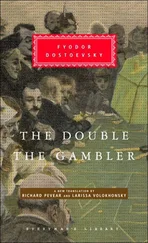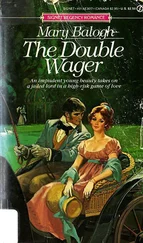“Did you ever see the pictures?”
“He wouldn’t show them to me. It wasn’t safe,” he said, looking left and right histrionically, pretending to check to make sure that no one was listening.
“Katherine alluded to the same thing. What was he worried about?”
“Laurel, the man was schizophrenic! For all I know, it was aliens!”
“He never said-”
“One time, he said something that led me to believe his paranoia went back to his dad. He wasn’t scared of him-that wasn’t it. But it sounded like Bobbie feared that some people who knew his old man were after the pictures.”
When they reached the van, Laurel pulled his arm back so she could ask him one more question before they were surrounded by Bobbie’s friends inside the vehicle. “Tell me: How does a person who’s taking photos for Life magazine wind up homeless? I know he was mentally ill. But how did the wheels come off so completely on the poor guy? Didn’t he have any family? Any friends? He was so likable, how could he not?”
Sam Russo motioned to the men who were piling into the van in their ratty sneakers and thrift-store Oxford shirts, their pants that smelled always of the street: Howard Mason. Paco Hidalgo. Pete Stambolinos. “How do the wheels come off for any of them? Bobbie may have been a pretty good photographer once-you’d know better than me if he had actual talent-but, as you said, he was mentally ill. And, it was clear, he had serious attention deficit problems. Thirty, forty years ago, there wasn’t a whole lot we could do. We had Thorazine. We were just starting to experiment with haloperidol. But that was about it. And let’s face it, Laurel, you only saw him after he was back on his meds. You didn’t see him-or, forgive me, smell him-after he’d spent a night in a parking garage. Or when he was being kicked out of a diner because he’d been there for hours, ordering and eating like there was no tomorrow, but didn’t have a penny in his pocket. Or when he was trying to tell me that he had once hung with Coretta Scott King. I mean, I could see him with some of those musicians. But Coretta Scott King? That’s a stretch. And God only knows what chemicals he ingested in his life-you know, recreationally-or what sort of substance-abuse problems he’d had. Or what kind of demons he brought with him into adulthood. I sure don’t. Emily might. Emily Young. But trust me: The things I don’t know about these people-any one of them-could fill a book.”
WHILE LAUREL HAD been at the funeral, Katherine’s assistant had dropped off the small envelope with Bobbie’s other pictures in her office. There were a dozen snapshots, some browned and yellowed with age. Laurel had just begun to thumb through them when she paused with a flutter in her chest and sat perfectly still. There, in a black and white so old the edges were scalloped, was the house across the cove from the country club where she had spent so much of her childhood. Pamela Buchanan Marshfield’s mansion. She recognized instantly the terrace and the adjacent portico with its eight wide columns. The balconies that overlooked the water. The dock. Behind it was a second, different image of the house.
It had never crossed her mind that Bobbie Crocker could somehow be related to the Buchanans of East Egg. Why would it? She hadn’t thought much about either Jay Gatsby or that family across the water since she’d left for college and stopped spending her long summer days at the club. She hadn’t really thought much about any of them even when she had been living in her Speedo suits there.
She placed the photos upright against her computer monitor and turned to the next one. There it was, the country club itself, complete with its thick, massive stone tower. Behind that print was one of the original swimming pool-Gatsby’s swimming pool. And then there were a pair of images from the parties, one of which was dated in pencil: Bastille Day, 1922. There was a man she presumed was Gatsby himself, standing with a look of almost subdued bemusement beside his canary-colored roadster. And, finally, one of the children: a girl Laurel guessed was nine and a boy perhaps five, posed beside the Buchanan portico with a tan convertible parked behind them. It was evident that this image, too, was from the 1920s.
She recalled what Bobbie had once told her, one of the many remarks that Laurel had presumed were phantasms founded on nothing. He said he had grown up in a house that looked out across a cove at a castle. The Gatsby place wasn’t a castle, but it was made of stone and it had that tower that looked a bit like a turret.
She picked up the phone that moment and called her mother, hoping she didn’t have bridge or tennis that afternoon, or she hadn’t taken the train into the city to go shopping with friends or visit a museum. Since her husband- Laurel ’s father-had died, she had taken an existing tendency toward busyness and allowed it to become all-consuming: She was always out somewhere. Sure enough, Laurel heard her mother’s voice on the answering machine and hung up. Next she phoned her aunt Joyce-her cousin Martin’s mother-because she, too, had lived in the area since she’d been married and was a member of the club. Aunt Joyce hadn’t spent the time there that either Laurel ’s mother or father or certainly Laurel herself had, but she knew the local history and the social land mines that peppered the terrain as well as anyone.
Martin answered, his voice the tirelessly good-natured mush that Laurel ’s family alone could translate with anything that resembled accuracy. Because Martin had been born with both Down syndrome and partial deafness, he spoke like his mouth was filled with a giant popover. But Laurel understood him most of the time, even over the phone, and he might have been the only person she knew who would probably live an entire life without ever speaking badly of anyone. His heart was huge, his soul nonjudgmental. He called her Daughter Laurel instead of simply Laurel, since she was named after their grandmother, (who had passed away when Laurel was in high school). For Martin, that much older woman had always been Granny Laurel.
After Laurel had reassured him that she would visit him soon and suggested that they see a musical over Thanksgiving, he put her aunt on the line. The two of them probably spoke more often than many grown nieces and their aunts both because Aunt Joyce lived near Laurel ’s mother and because of Laurel ’s friendship with her cousin. The woman was, in some ways, a second mom to her, and so she didn’t presume when Martin told her who was on the phone that Laurel had especially interesting news.
Oh, but she did, and she got to it right away. She told her aunt about Bobbie Crocker and the photos and snapshots he had left behind, her voice just a little bit giddy, building to what she thought was her big discovery: “And Pamela Buchanan Marshfield had a younger brother, didn’t she?”
“As a matter of fact, she did,” her aunt replied with supreme calmness. “He died when he was a teenager. I must have been an infant at the time. Obviously, I never knew him. It’s just one more way that poor family was cursed. More money-and more bad luck, it seems-than anyone you could ever meet. What made you think of him?”
In the background, Laurel heard the strings that announced the beginning of the overture to The King and I. Martin had just slipped the disc into the CD player, and in her mind she saw him climbing into the regal Siamese vest and silk trousers his mother had sewn for him.
“He died as a teenager?” she asked her aunt, a little stunned. She picked up the photo of the two children. The boy was wearing plaid shorts with suspenders. The girl was in a summer party dress with a scooped neck and poufed ballroom sleeves.
Читать дальше












